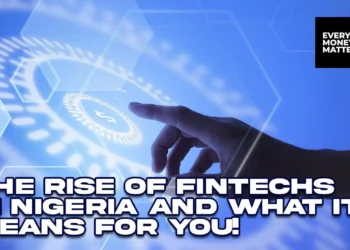The world is in an unprecedented state. With more than 2.9 million people infected with coronavirus across 185 countries and over 207,000 deaths, with no clear end in sight, entire nations and industries are at a standstill, the sort that the world has only seen a few times.
Our global village is now reordering its approach to remaining connected – leveraging digital technology. While many industries have taken major hits – from tourism to retail to manufacturing, the digital sector has experienced something of an acceleration. Stocks for the video conferencing organisation, Zoom, went up by nearly 100%, as well as a 78% revenue surge. This same ‘boom’ has been experienced by companies like Amazon, Netflix, Roku, as well as EdTech companies.
In Sub-Saharan Africa, where many countries and major business hubs are also on lockdown, the story is no different – an increase in the usage of mobile money and digital financial services has resulted in major growth projections for many of the key industry players in the region. Prior to this, as the GSM Association’s (GSMA) 2019 report shows mobile money usage in Africa was already displaying major growth indices.
Mobile money accounts on the continent had surpassed $1 billion, with West Africa leading the charge. During the same period, in Nigeria, Deposit Money Banks (DMBs) recorded a rise in e-payment earnings, which was also predicted to grow. All these are indicative of significant industry growth potential.
Now, in this COVID-19 era, the continued need to access funds—coupled with an increased need for physical distancing—has created a gap that non-physical methods of payment are primed to fill. In Nigeria, Deposit Money Banks are now intensifying digital operations in lieu of traditional channels and rapidly increasing their stake in FinTech even as financial technology companies form partnerships of the sort that SystemSpecs recently announced with Paga and Cellulant to extend financial services through digital channels to the nooks and crannies of Nigeria.
Amidst growing social distancing measures, the need for digital financial options including contactless payment systems and mobile money services is even more expedient. Digital financial service operators, keying into various government efforts, are increasingly playing an appreciable role in reducing entry barriers that previously gave rise to financial exclusion. For example, peer-to-peer (P2P) services like KiaKia and FINT enable individuals to pay and reimburse each other without exchanging cash.
MTN’s Y’ello Digital Financial Services waived user fees for Cash2Cash – a local money transfer service offered by its MoMo Agent Network. In other parts, Safaricom has implemented a fee waiver on M-Pesa to reduce face-to-face transactions in response to the COVID-19 outbreak. These laudable steps by financial service providers will be even more effective if supported by appropriate regulation.
Nevertheless, certain questions remain: amidst a global health pandemic spread by human contact, what policy tools need to be put in place to encourage digital on a wider scale through financial transactions in Nigeria? And how can we capitalise on the entry of these new adopters to create a consistent culture of usage and an increased familiarity for digital financial service platforms beyond the pandemic?
The Enablers of a Digital Economy
Digital financial services and the economic activity they enable have consistently had positive economic and social impacts on the global economy as well as on individual countries. Electronic transfers have emerged as a proven catalyst for financial sector development and the push for digital products may persist long after COVID-19. So, it is important that governments embrace the private sector in the development and implementation of financial inclusion policies, especially as the cashless policy comes into effect. Though the opportunities are evident, the extent to which they can be leveraged is largely dependent on policy, as well as tailored products and services.
South Korea saw the potential of telecommunications technologies in the financial sector, with operators investing heavily in the expansion of their 5G capacity as well as an increase in machine-to-machine connections. The country has quickly become the world’s most advanced mobile economy since the government eased regulatory policies for the FinTech industry and adopted digital strategies for the country. The government designated the FinTech industry as a priority sector to drive economic growth.
Consequently, South Korea has benefitted from a more business-friendly environment and increased investment in mobile payment systems. Closer to home, with conducive regulations and the development of a regulatory sandbox, the Central Bank of Kenya also did not disregard the potential of telecommunications operators in the financial space. As a result, Kenya’s M-Pesa has become East Africa’s leading mobile money operator and has completely transformed Kenya’s economy.
While appreciating that the experiences of different markets around the world vary and so would the model adopted, the earlier examples of South Korea and Kenya show that to realise the benefits of digital technology, a few basic factors need to be in place. One key factor is a forward-looking government that embraces digital advancement and policies to promote coverage, usage and innovation. Another significant factor is the reliable and well-protected broadband infrastructure. But just as important are consumers with the requisite digital skills, well-functioning cybersecurity systems, and targeted communication and services to various consumer needs.
Building digital economies require that stakeholders address regulatory and sustainability issues. However, beyond policy and regulation, we need well-designed, properly governed, accountable and impactful collaborations between the government and private sector players.
This enables policymakers to integrate learnings from the collaborations to align with key policy developments that not only incentivise investments but also maximise the development of a digital economy that encourages greater uptake and usage of digital services. This is a principle that has contributed to the growth and innovation of our solutions at SystemSpecs; we listen to client feedback – to understand their preferences, channel usage, their needs and satisfaction – while re-engineering our products to meet their needs, thus inclining people to be more willing to use our solutions and services.
Enhancing sustainable financial inclusion
In order to capitalise on the opportunity to deepen the impact of these solutions, and their ability to truly lift people out of poverty, we must ensure that we truly understand the barriers to adoption. 2017 data from GSMA shows that reasons for limited adoption—beyond a lack of perceived need and lack of money to transact—was a lack of trust and education, which innately are often interlinked.
This predominantly applies to underserved and excluded low-income user groups at the bottom-of-the-pyramid, with lower levels of education and limited experiences with financial services in general. While the current circumstances have created a necessity-based usage, the ability of service providers to create an affinity rests on these two pillars.
The current circumstances in Nigeria have presented providers with a means to better understand the customer groups they cater for and tailor their services to encourage use on a consistent basis, even after the pandemic. Late last year, at the Lagos Business School Financial Inclusion Conference, much of the discussion centred around encouraging prolonged adoption; that is, the continued adoption and use of products and services is dependent on the continued relevance to an individual’s evolving needs and state of being, which ultimately determines the effectiveness of their inclusion.
“Finclusivity”, as it were, does not end at the ‘sign-up’; rather, it carries on to the point at which an individual has been able to leverage the financial resources at their disposal to increase and improve their economic outcomes. Ultimately, a well-rounded financial sector is characterised by the vast availability of payment and other financial services, offered by traditional and non-traditional players including as banks and non-banks. National financial inclusion strategies should, therefore, strive to create and sustain an environment that protects and benefits consumers, without prohibiting growth.
Article was written by John Obaro, Founder, Chief Executive Officer, SystemSpecs Nigeria Ltd.























